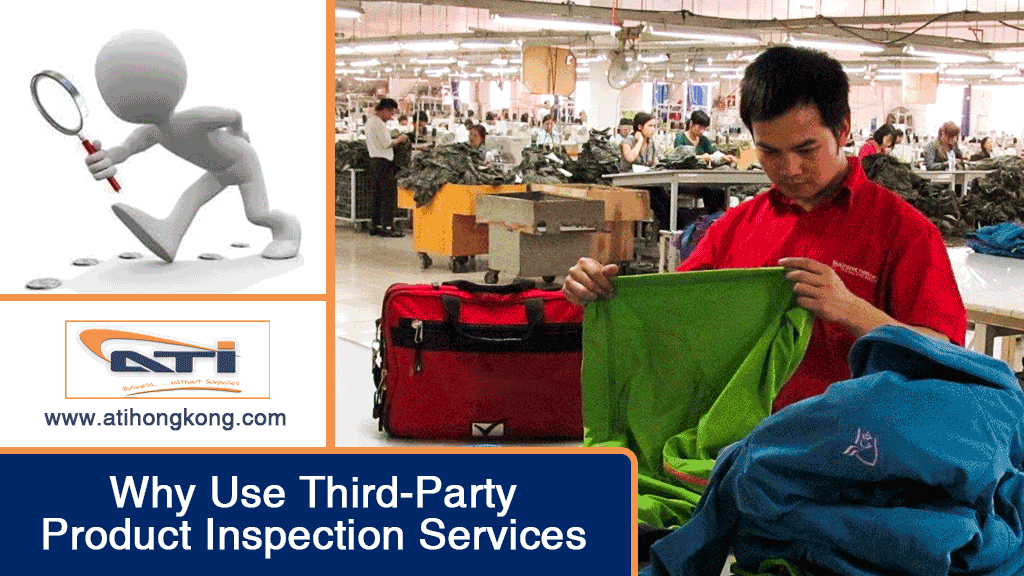Why is quality control so important for importers?
With the global market becoming increasingly competitive, businesses are struggling to make their products stand out in the market and gain a higher market share; there are several methods available for businesses to achieve this, including competitive pricing and persuasive advertising. However, one aspect that clearly trumps virtually all other aspects of a product is its quality- think of it this way, why would anyone purchase a low-quality product that does not meet the customer’s expectations no matter how low the price or how clever the marketing. It is thus of utmost importance that businesses all over the world pay the greatest of attention to the quality of their products.
This quality control becomes ever more vital for importers given the large distance involved between the place of manufacture and the final place of purchase. Compared to local businesses, importers may find it much more difficult to return faulty products- both in terms of the costs involved as well as the legal formalities. It is therefore all the more essential for importers to be involved in reliable quality controls through product inspections at the site of production.
Why are importers usually reluctant to use third-party product inspection?
Given that an importer wants to perform product inspection, there are two ways that the business may be able to perform this inspection: either by hiring their personal product inspectors or by outsourcing the process to third-party inspection professionals. It seems that hiring a third-party inspection company that has links in the local market is much more hassle-free route, yet many importers are reluctant to hire these third-party inspectors. The question that stems is why?
Indirect communication channel
One of the foremost reasons why importers would prefer to hire their own product inspectors is that they might feel more in control in the entire process. With a personal product inspector for the business, the importer may feel that he may be able to better convey his required quality standards that are expected of the products. For this reason, the limited communication directly with the inspection staff in a third-party inspection company may be unsettling for the importer. Some importers might worry that the involvement of a client manager in the quality control process might yield them unreliable results- whereas the contrary is perhaps all the more true.

Rotation of the inspection staff
Another concern that the importer might express is that different qc inspectors will survey the products at different point in times. They might prefer to build relations on a more intimate level with the same staff so that they are better able to express their concerns about the quality of the products as well as any changes they might like to bring- it would make sense that it is easier to convey this information to the same person and his team rather than to explain it to a different group of staff at every inspection. However, as is explained later on, having multiple quality inspectors is actually a blessing in disguise as it prevents serious problems such as integrity issues that may arise when a single inspector is made to check on the quality of products every time.
5 reasons why importers prefer third-party product inspections:
So far we have examined the reasons why some importers may be hesitant in employing third-party product inspectors. However, a majority of importers actually prefer outsourcing their quality control processes for a number of different reasons, a few of which are listed below:
- Lower cost
For any firm in business, profit is perhaps the key objective. In order to maximize this profit, the business would like to increase its revenue streams and cut down costs as much as possible, without compromising on quality, of course. To the surprise of many, even though hiring a third-party for product inspection may appear to add to the cost of the business, in a wider perspective it actually helps to cut down costs for the business: compared to hiring a personal product inspection team, as well as compared to the possible losses that may arise from no or unreliable product quality control.
For example, take into account the cost of travelling to the foreign country where the product is being manufactured. If the inspection is to be a frequent process, then the overall travel expenses that the importer has to pay may perhaps amount to a sum just as large as the third-party’s pay, not to mention the annual salary of the personal inspection team that has to be paid regardless of whether they are required to work all year or not. Compared to this, a third-party quality inspection company has experts situated all over the world that are able to travel conveniently to the local market whenever required. This not only saves the monetary cost of travelling and an annual salary that has to be paid whether the team is required all around the clock or not, it also saves on precious time that is wasted travelling lost distances. And as they say, time is money!
2. Reliability
Integrity issues are a concern for businesses all over the world, but perhaps even the more for importers situated far away from the production unit who are unable to supervise the work process themselves. In such situations, bribery and petty corruptions are concerns that are not unheard of, and even though it might be extremely difficult for the administrators to specifically pinpoint hidden acts of bribery- such as paid for transportation of the inspection team- these instances can greatly be reduced using a professional third-party inspection team.
These third-parties often have very stringent rules regarding unnecessary mingling with the production team, as well as receiving even the smallest of favors that might bias the judgment of the staff towards the production team or unit. These laws play a major role in ensuring that only a highly professional environment is maintained in the workplace.
In addition to this, the fact that there is constant revolving of inspection staffs for a given business, this prevents unnecessary familiarity of the production team with the inspection staff. This is one of the prime advantages of outsourcing quality control, because the same people are unlikely to inspect the products on multiple occasions.

3. Flexibility
As mentioned earlier, another advantage of outsourcing the quality control process is the benefit of having need-based short term contracts as required by the importers. He does not need to hire a team that has to paid and accounted for around the clock, even if the services are required only once or twice the year. These third-party teams offer highly flexible contracts that can be drafted and signed when required- saving the importer a great deal of money.
It also means that these teams can be called upon on a relatively short period of time, such as when the importer lands a new client that requires an urgent product inspection. In such circumstances, hiring a new team or arranging for their travel expenses may be more costly and time-consuming than contacting these third-party professionals who already have in-place a wide network of professional staff situated all around the world.
4. Familiarity with local language and culture
Perhaps an advantage that is often over looked is that these third-party teams are much more acquainted with the local language and cultural norms than would be the team of individuals coming from a foreign country. Many times, importers import products from a country that does not have the same language as theirs; so even if the top management may be able well-versed in the importer’s language, it is unlikely that the junior production staff would be. For this reason, having a local team of inspectors would mean that they are better able to scrutinize the production process without facing any language barriers or violating any cultural norms.
5. Related service
One more reason that importers might prefer outsourcing the quality control process is that these third-parties often offer an array of different services not limited to product inspection only, such as supplier evaluations or lab testing. This can act as a great convenience for the importer for all the reasons mentioned above, as well as the idea of a one-stop shop that offers solutions to multiple problems that an importer may face.
On top of that, all the services offered are by highly trained professionals who adhere to given standards and rules so the risk of product rejection in the local market is greatly reduced. Overall, the cost of hiring multiple teams for each function greatly exceeds seeking the help of a third-party, so that you can work in a stress-free environment.
Conclusion
In conclusion, although both the options of hiring a personal inspection team or teaming up with a third-party are open to importers, it is essential to keep in mind to choose the alternative that does not compromise on quality while keeping costs at bay.
Some importers, for these reasons, prefer to have a more hybrid approach to product inspection: hiring personal inspection teams for production units that require more frequent inspections and outsourcing the places that are better suited to third-party teams. In this way, importers are able to achieve their desired mix of services that suit them best.


